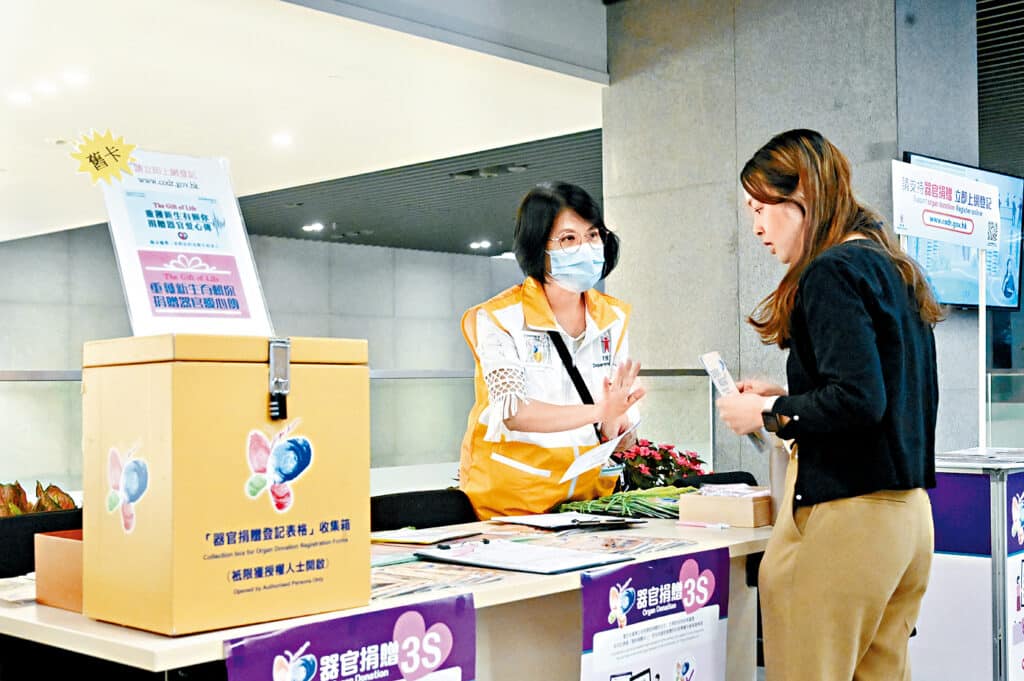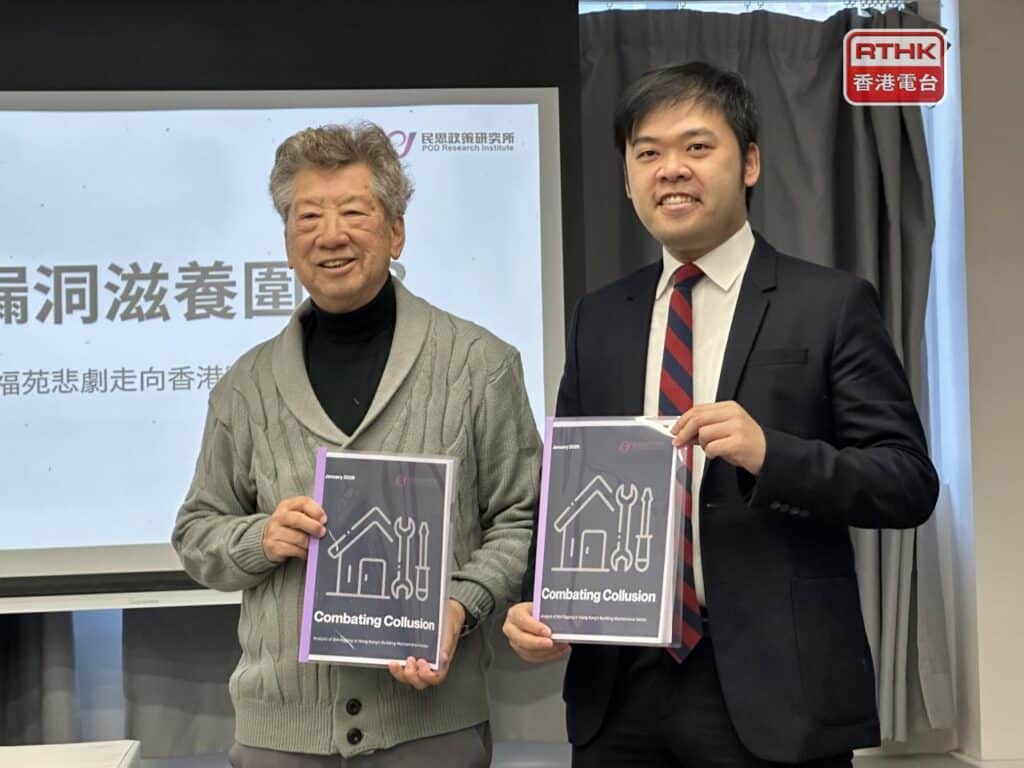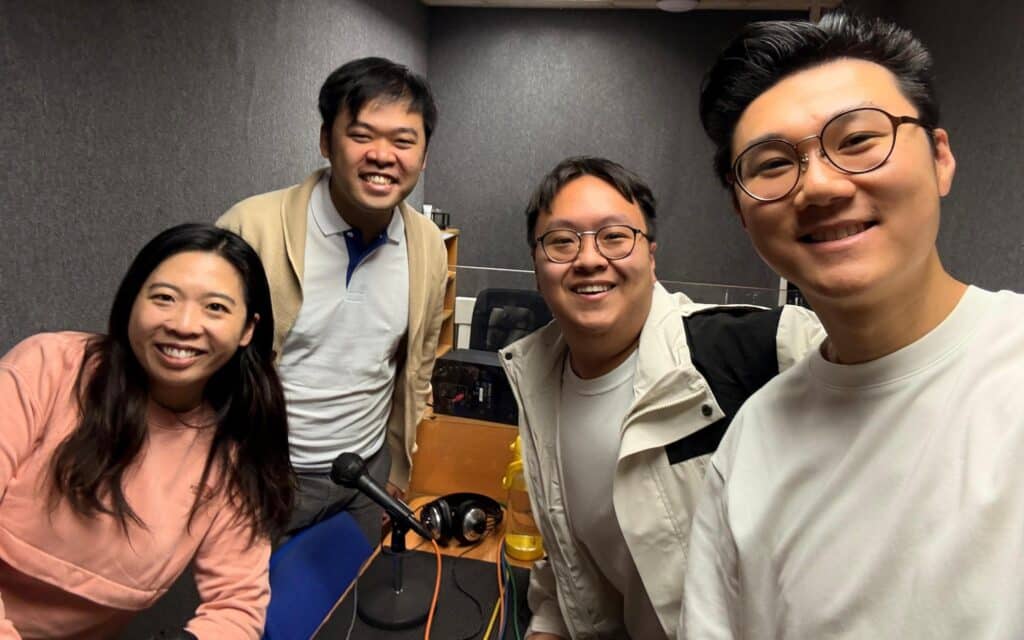Currently, nearly 400,000 people have registered for organ donation, a record high, but Hong Kong is still one of the regions with the lowest organ donation rate in the world, falling to a new low of less than 4 people per 1 million people in the past two years. Some doctors suggested that in addition to strengthening education and breaking the traditional idea of "leaving an intact body after death", efforts should be made to find potential donors from hospitals, such as setting up a transplant team composed of doctors to assist. Another doctor reiterated the introduction of the "default consent" mechanism popular in foreign countries, allowing citizens who do not want to donate organs to register voluntarily; the think tank pointed out that Hong Kong people's concepts are still conservative, and it is appropriate to implement it when society is more accepting of organ donation. Last month, Hong Kong received cross-border organ donations from the Mainland for the second time. Some doctors hope that it will be regularized as soon as possible so that more patients can benefit.
A survey conducted by the Statistics Department at the beginning of last year showed that the proportion of citizens willing to donate organs after death in 2022/2023 was only 22.9%, or 1.03 million people, a decrease of 4.8% from 2020/2021; while the number of citizens unwilling to donate organs after death increased to 17.1%. The reasons included "hope to keep the body intact", "lack of support from family members", "fear of suffering after death" and "worry that the organs are not suitable for transplantation".
87 patients died during the waiting period in 4 years
According to data from the Legislative Council Secretariat's Information Research Group, there are only 4.7 organ donors per 1 million people in Hong Kong in 2022, which is one of the lowest organ donation rates in the world. In 2023 and 2024, there are only 3.2 and 3.9 organ donors per 1 million people in Hong Kong respectively, and only 2 lung transplants are performed each year during the period. From 2021 to 2024, there are nearly 2,600 patients waiting for heart, liver, lung and kidney transplants each year. Excluding more than 90% renal failure patients who can improve their condition through kidney dialysis, 87 patients died during the four years while waiting for heart, liver and lung transplants.
The Department of Health established the "Central Organ Donation Register" in 2008 to promote organ donation. So far, it has recorded a record high of nearly 400,000 registrations, but the actual donation rate is low. In the past two years, only 54 people donated their organs after their death, allowing 138 patients to continue their lives. Dr. Zhou Jiahuan, convener of the Hong Kong Organ Donation Action Group, said that the reason is not only related to the Chinese concept of keeping the whole body, but also related to the fact that citizens have not informed their families of their willingness to donate, causing relatives to refuse to donate without knowing it. She also mentioned that 40,000 patients die in public hospitals every year, and it is estimated that 3% of them are brainstem dead patients suitable for organ donation. If potential organ donors can be found early, the situation may improve. However, she said that even if the organ transplant liaison director finds a potential donor, there must be a dedicated doctor to monitor the patient's condition and determine whether he is suitable for organ donation.
Spain and Australia are the two countries with the highest organ donation rates in the world. In 2022, there were 46 organ donors per 1 million people in Spain. The two countries have also established organ transplant coordinators who are specialists in intensive care units to identify potential organ donors in hospitals. Zhou suggested that in the future, a special team composed of intensive care unit specialists and organ transplant liaison directors should be established in each emergency hospital to coordinate and find potential donor cases, transfer potential brainstem death patients to the intensive care unit as soon as possible for better care, and ensure that organs can be removed for transplantation after the patient's death.
Currently, Hong Kong only accepts organ donations from deceased persons who meet the "brainstem death" criteria, and those who die of cardiac arrest can generally only donate corneas and skin tissues. The prerequisites for determining brainstem death include the patient having a clear cause of coma, excluding various recoverable factors, and being tested twice by two senior doctors. After confirming that the brainstem response has completely disappeared and the patient has lost the ability to breathe independently, the patient is officially declared dead. During the process, the function of the patient's organs may be maintained for a short period of time due to the use of ventilators and drugs, so they are more suitable for transplantation.
Another doctor pointed out that the high rate of organ donation in Spain is related to the implementation of the "organ donation after cardiac death" model in the country, and believed that the feasibility of introducing such a model in Hong Kong could be explored. The "organ donation after cardiac death" model refers to the removal of organs for transplantation after the donor's heart stops beating for a specified period of time and is determined to be dead. The medical community generally believes that organs removed under this model are more difficult to preserve than those removed under "brain stem death", but agrees that it helps increase the source of organs. However, the doctor also pointed out that given the conservative mentality of Hong Kong people, with the long-term low organ donation rate, they may not be able to accept the "organ donation after cardiac death" model.
Re-introduction of a "default consent" mechanism
Dr. Ho Kai-leung, founder of the Hong Kong Organ Transplant Foundation, advocated the introduction of the "opt-out" mechanism adopted by countries such as Spain to increase potential organ donors. He pointed out that Hong Kong currently adopts the "opt-in" mechanism, where citizens can express their willingness to donate organs after death, but the family members still need to agree to it before it can be carried out. He believes that this mechanism is more passive. On the contrary, under the "opt-out" mechanism, the authorities assume that all citizens agree to donate organs after death, and those who disagree must express their unwillingness to donate during their lifetime.
In fact, there are two types of "default consent" mechanisms: soft and hard. Spain and Sweden currently adopt a soft default consent mechanism and have enacted laws, in which family members can ultimately object; Singapore and Austria adopt a hard default consent system, which means that citizens are assumed to agree to donate organs after death, without the need to seek family consent. According to the Global Organ Donation Database, the organ donation rates of countries that implement the "default consent" mechanism also vary, with Spain being at the forefront and Singapore being less effective.
Call for regular cross-border donations from the Mainland
Dr. Lau Chung-hang, consultant of the Hong Kong Unity Foundation, agrees that Hong Kong can implement a "pre-set consent" mechanism, but it is better to refer to the Spanish approach and allow family members to veto. As for the public's fear of "damaging the body", it needs to strengthen public education to dispel it.
Poon Hok-chi, co-convener of the private think tank "Democratic Ideas", also pointed out that many years ago, Hong Kong had discussed the implementation of the "default consent" mechanism, but encountered many oppositions. He said that "default consent" can be regarded as the long-term goal of Hong Kong's organ donation policy. Although there are nearly 400,000 people registered in the "Central Organ Donation Register", it only accounts for about 5.3% of the population, reflecting that the public still has reservations about donating organs. It is expected that the number of registered people in the register will reach 10% of the population, which is a more suitable time for implementation.
Ho Kai-leung pointed out that young people are the hope for increasing the organ donation rate in the future. "It is very important to instill in the new generation, who are just starting out, the selfless concept that organ donation can continue the family's love and save the patient's entire family." Chow Ka-huan also pointed out that in recent years many elderly people have been open to donating organs after their death, but do not know how to register online. He suggested that the authorities or social welfare organizations provide assistance when visiting nursing homes or elderly centers.
Last month, an 8-month-old baby girl Qi Qi was saved by a cross-border heart donation from the Mainland. This is the second cross-border donation case from the Mainland since the end of 2022. Some doctors pointed out that as the organ donation rate in Hong Kong has been low for a long time, cross-border organ donation is expected to bring hope to patients in Hong Kong, and they expect the authorities to make the mechanism regular. However, they pointed out that before implementation, the training of border and medical personnel in both places should be strengthened, and it was suggested to use neighboring cities in Guangdong Province as a pilot for cross-border donations to establish a cooperative relationship.



